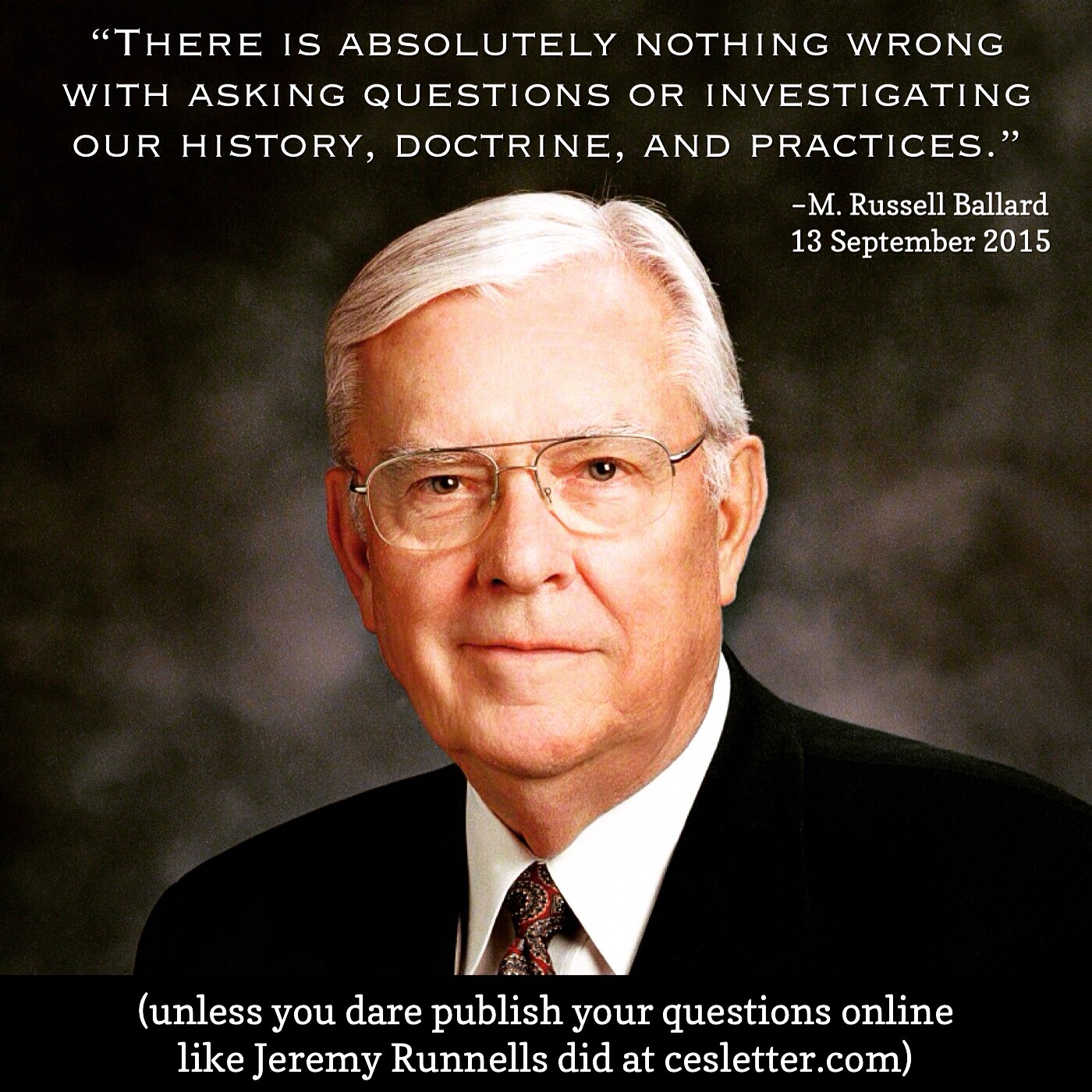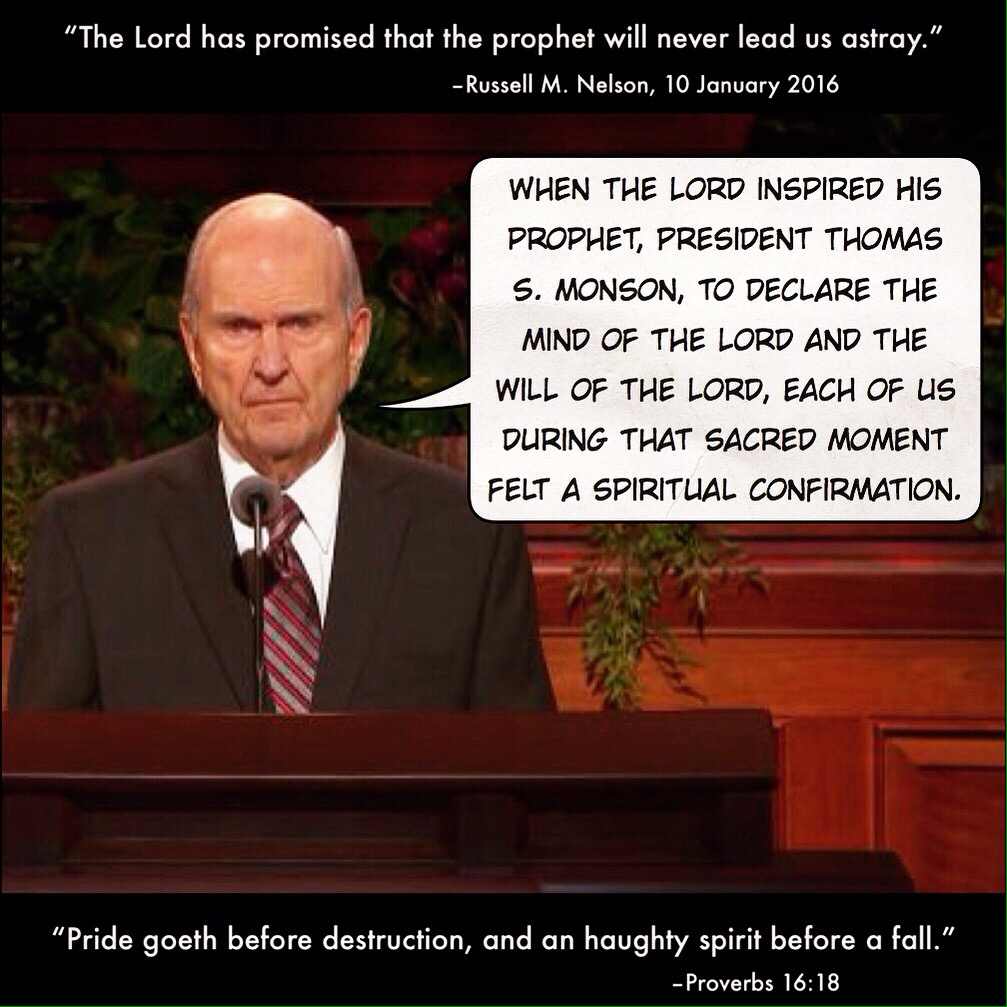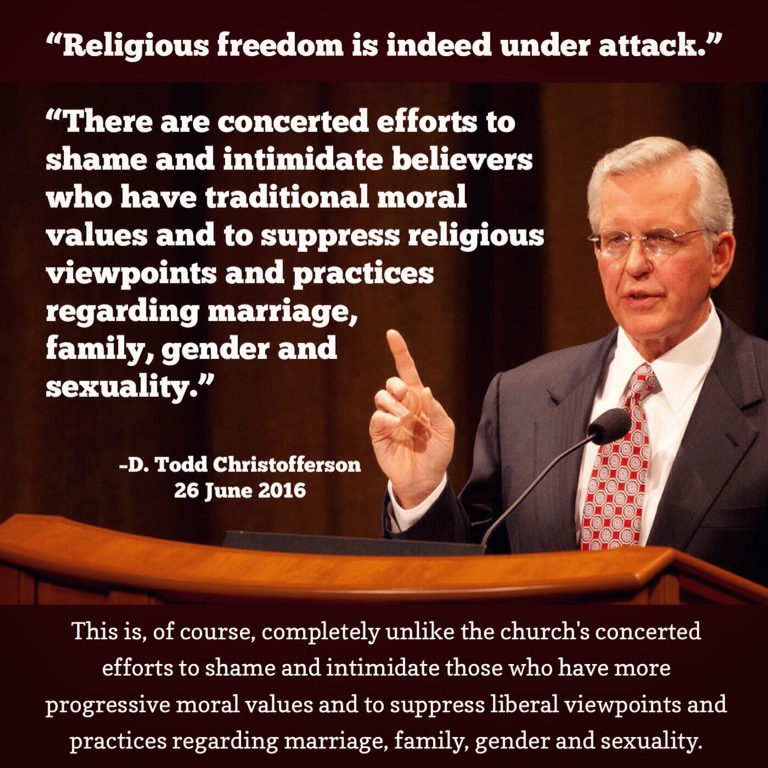
QUOTE: “There is absolutely nothing wrong with asking questions or investigating our history, doctrine, and practices. … We have heard stories where someone asking honest questions about our history, doctrine, or practice were treated as though they were faithless. This is not the Lord’s way. As Peter said, ‘Be ready always to give an answer to every man [or woman] that asketh you a reason of the hope that is in you.’ We need to do better in responding to honest questions.” –M. Russell Ballard, 13 September 2015. [source]
EVENT: Jeremy Runnells, author of the Letter to a CES Director, has been summoned to appear before a disciplinary council on Sunday 14 February 2016. [source]
COMMENTARY: Looks like another clear case of the church publicly stating one thing and then acting completely opposite. But what do I know? I’m just another apostate.





So, instead of asking any questions, you shoot out accusations without telling the entire story. I am assuming you know the entire story, and therefore know that he did more than post questions. Looking in from the outside, not caring about Runnells or Mormons, I am a bit embarrassed for you. You oversimplify the situation, then come to a conclusion without showing all the evidence. How many historiagaphical fallacies can you commit? Why do you or Runnells care if he is excommunicated from the LDS Church? Neither one of you want any part of their organization, so why are you whining when they ask you to leave? According to the policies of their religion, Runnells committed “apostasy”. He obviously knew what he was doing, and is getting what he wanted. It is people like you that make the rest of the Christian world look like idiots. If you are not going to honor the policies of an organization, don’t complain when they ask you to leave. Rummells did not simply ask questions online, if you claim to be honest, include the entire story. excluding evidence is dishonesty.
Hi, rekcap. Thanks for your comments. You bring up a lot of points. If I fail to address one you feel was important in this reply, please let me know.
I obviously didn’t include all of the details. I feel I offered a fair representation of the point I wanted to make, though. I disagree that I’ve oversimplified. Please fill me in on all of the “historiagaphical fallacies” I’ve committed. Or, since there are evidently a lot of them, we can start with just the most egregious, if you care to point it out.
What details would you have liked me to include? What are the important points dealing with a person having and asking questions that you feel I’ve omitted from this brief write up? That he asked several times and several people? That each time he was promised answers and then later ignored? That in the end, every church leader with whom he dealt failed to engage in an honest discussion about the questions? That his write up of the questions went viral as other members discovered them and found them pertinent? Or did you want me to say that posting questions on the Internet is an act of apostasy?
It is true that I personally am not as concerned with an individual remaining a member of an organization with which he disagrees as I am about an organization the professes to be about love and inclusion not following its own stated beliefs and procedures and kicking out troublemakers for political rather than religious reasons. But let’s not make arguments from the perspective of personal motivation. My motives, my desires, my concerns are all completely irrelevant to the facts, and if you want to discuss my motives, I can only assume it is because you would rather not focus on what is important here: the facts.
I completely disagree that “according to the policies of their religion, Runnells committed apostasy.” Can you show me the policy you are talking about?
I think the rest of the Christian world does a fine job looking like idiots on its own and doesn’t need any help from people like me.
Finally, if excluding evidence is dishonest, as you claim, then when Runnells came across information that the church leaders knew about and had not presented to its members, would you agree that the leaders had engaged in dishonesty? Or is that label reserved only for people who disagree with the church?